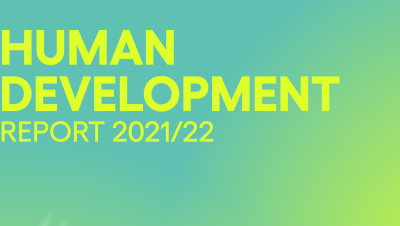I am honoured to join in marking the 25th anniversary of the Human Development Report. For too long before the advent of this landmark series, a nation’s prosperity was viewed solely through the lens of economic growth. This approach obscured a central truth: people are the real wealth of a nation. The Human Development Report helped change the perspective, from the things that a nation produces – to the people who actually produce them.
Like many of the most profound ideas, human development is, at heart, tremendously simple.
At its core are two powerful notions that reflect the core aims of the United Nations:
First, human development is built on widening people’s choices to live and lead better lives. As Mahbub ul Haq, the intellectual founder of the principle, put it:
“People often value achievements that do not show up at all, or not immediately, in income or growth figures: greater access to knowledge, better nutrition and health services, more secure livelihoods, security against crime and physical violence, satisfying leisure hours, political and cultural freedoms, and a sense of participation in community activities. The objective of development is to create an enabling environment for people to enjoy long, healthy and creative lives.”
Second, human development recognizes that the development process is complex and inter-connected. More than ever before, challenges transcend national borders and solutions rarely emanate from one agency or department. Tackling threats such as climate change, financial crises, poverty and disease requires a larger perspective and a commitment to think beyond boundaries and bureaucracies.
Over the past quarter century, the elegant simplicity of human development has helped the hundreds of global, regional and national reports profoundly resonate with people and within policy circles. In that time, the world has made tremendous progress in reducing poverty, improving health, expanding education and enhancing sanitation. As we look ahead towards a new sustainable development agenda, we will continue to be guided by the power and relevance of the human development approach.


